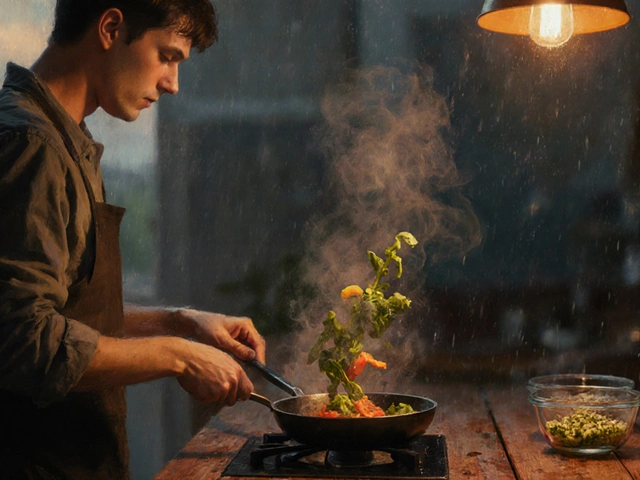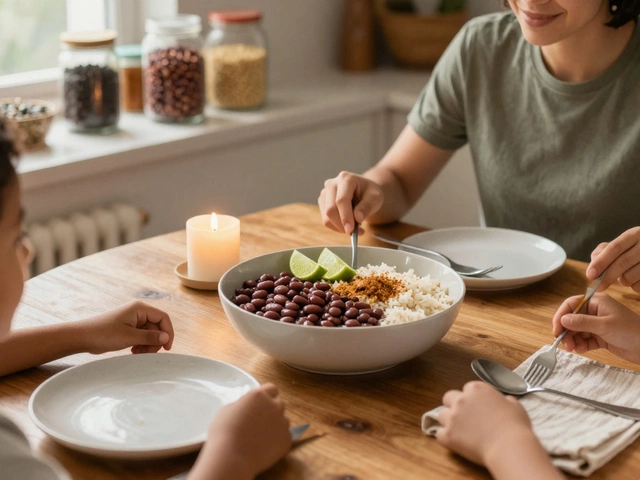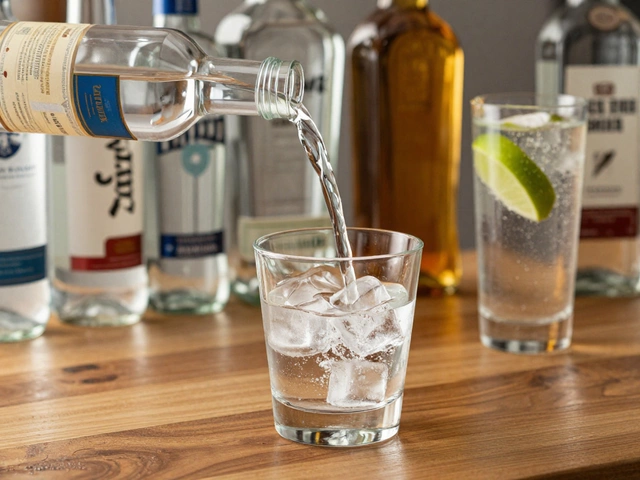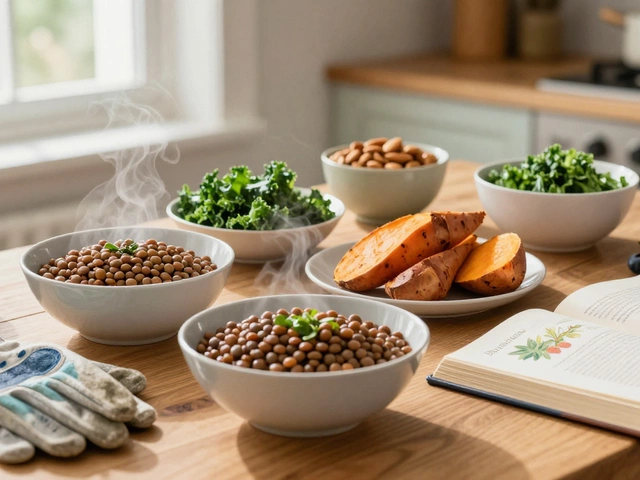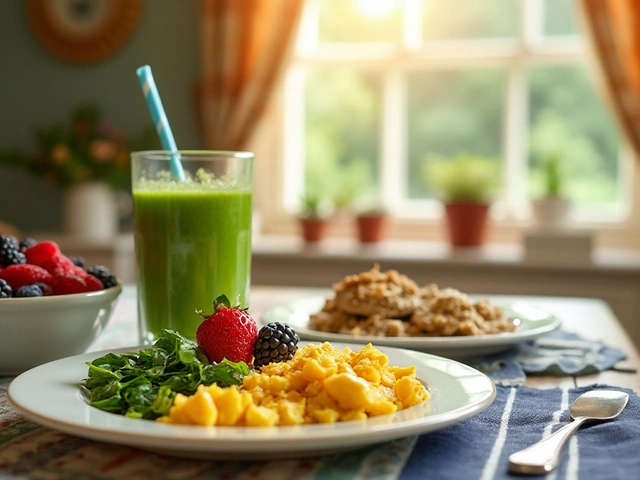
If wrinkles really told the story of what’s on your dinner plate, my grandma would’ve been a permanent baby face until her last bite of steak. But is it possible skipping burgers means you’ll get gray earlier, or does swapping ribs for roasted chickpeas slow down the clock? People don’t just debate this online—they genuinely fret about it. I’ve heard parents at the playground almost whisper about their worries, wondering if their tofu-loving teen is missing out on long-term health.
Common Myths: Are Vegetarian Diets to Blame for Rapid Aging?
Let’s be real—the stereotype about vegetarians looking pale, tired, or even older than their years is stubborn. But a quick walk through any plant-based cooking class or even at my own kitchen table and you might start to question that. So where did this myth come from? Some folks argue that animal products provide vitamins you can’t get otherwise, so skipping them puts you at risk for deficiencies that might make your skin sag or your body feel worn out. Others point to old magazine photos of celebrities who went vegan and supposedly aged overnight.
First, here’s a fact: Nutritional deficiencies do affect the aging process, but they don’t sneak up just because someone’s vegetarian. The biggest concern in these conversations is usually vitamin B12. Our bodies can’t make B12, and plants don’t have it. True, meat eaters get their fill from steak, chicken, and the like. Vegetarians need reliable sources, too—which means fortified cereals, dairy, eggs, or a supplement. If you skip B12 long enough, nerves and skin can suffer, and people might look more tired, but this isn’t fast-tracked or inevitable if you’re mindful. For example, the American Journal of Clinical Nutrition published data showing vegetarians with healthy B12 levels didn’t look or age differently than meat eaters.
Iron also gets blamed for vegetarian "aging." Iron is key for energy and good skin. Meat has heme iron—that’s the kind your body absorbs best. Plants have non-heme iron, but it’s not as bioavailable. So if you’re craving lentil soup instead of steak, you need to pair iron-rich foods (like spinach) with vitamin C (like citrus), since this boosts absorption. My kid, Bryn, crushes strawberries over her oatmeal, and honestly, she’s got more bounce than most adults I know.
Protein is another one. There’s a rumor out there that vegetarians can’t keep muscle tone with age, but that’s outdated. Beans, lentils, eggs, dairy, nuts, seeds—there’s protein in all kinds of things. Researchers in the journal Frontiers in Nutrition noted that vegetarians got enough protein to maintain muscle and keep skin firm, even after 50. The trick is mixing up your plant sources if you don’t eat dairy or eggs.
The truth: Poor planning can make anyone age faster—no matter what’s on their plate or not—but simply skipping meat doesn’t put you in the express lane for wrinkles or poor health.
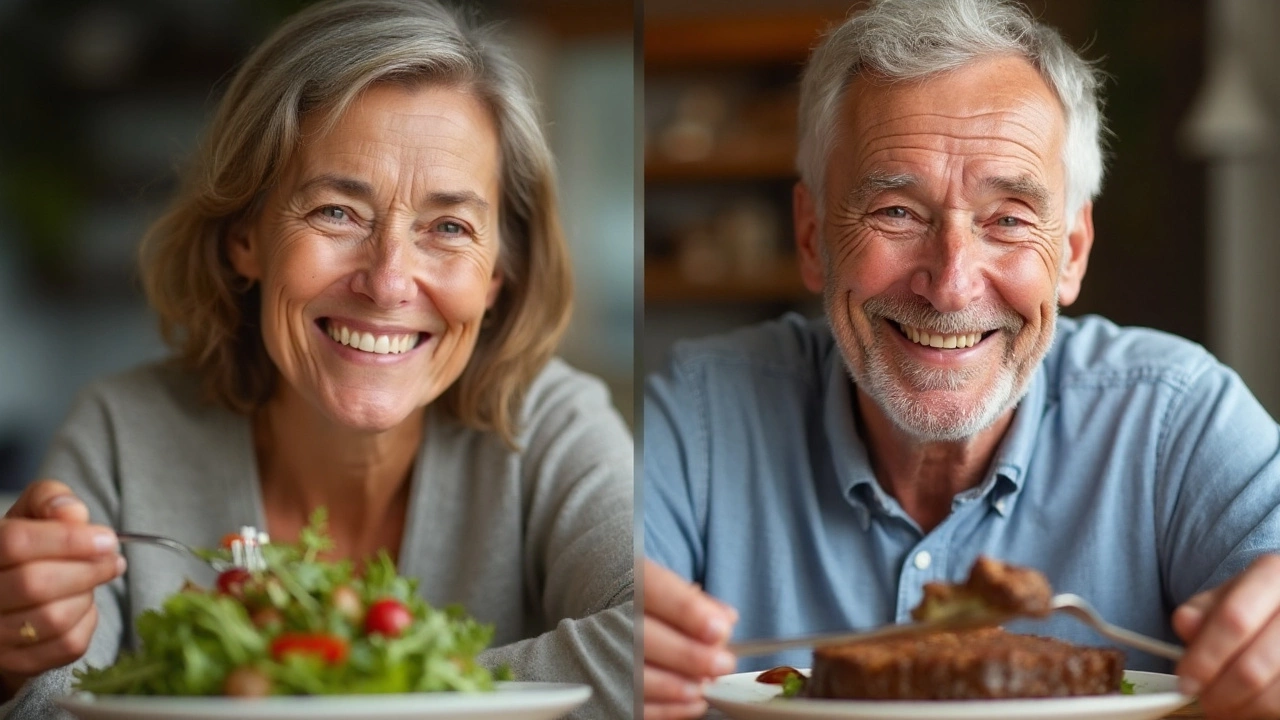
What the Science Really Says About Diet, Aging, and Longevity
So, does what you eat actually affect how you age—and is there proof that vegetarians age differently from meat eaters? There’s loads of data to unpack here, and not all of it lines up with the popular imagination. Scientists often look at telomeres—the little caps on the end of your DNA that get shorter as you age. The shorter your telomeres, the more likely you are to see aging effects, from achy joints to fine lines.
One study from 2022, published in Nutrition Reviews, tracked both vegetarians and omnivores. Researchers found no big difference in telomere length between groups—what mattered more was intake of fruits, veggies, and whole grains. It turns out that antioxidants (think berries, dark greens, and beans) and anti-inflammatory foods protect your DNA from wear and tear, no matter if you eat chicken or chickpeas. So it’s what you put on your plate, not what you leave off, that seems to matter.
It’s also interesting to look at regions with the longest-lived people—the Blue Zones. In places like Okinawa, Japan, and Loma Linda, California, most folks eat diets that lean heavily vegetarian. Beans, grains, leafy greens, and nuts are staples; red meat is occasional at best. People here regularly live into their late 90s and beyond, with clear minds and strong bodies. So what’s their secret? Fiber-rich foods, plenty of antioxidants, and community connection. One research summary in The Lancet showed plant-focused diets were linked to lower risk of diseases like Alzheimer’s and heart disease—two things that definitely make people feel and look older when they hit too soon.
Of course, meat isn’t automatically the enemy of youth. Quality protein is important. Lean cuts, oily fish, and eggs deliver amino acids that build collagen, the "scaffolding" for youthful skin. But some studies (see the Adventist Health Study-2) suggest that too much processed or red meat, especially if cooked at high temps (think crispy bacon or charred steak), speeds up aging markers in your body. The byproducts created—even if they taste like a dream—can increase oxidative stress, which puts pressure on your skin, joints, and organs.
Let’s look at a quick data comparison:
| Diet Type | Mean Telomere Length | Risk of Cardiovascular Aging | Common Nutrient Deficiencies |
|---|---|---|---|
| Vegetarian | ~5,700 base pairs | 14% lower | B12, iron |
| Meat Eater | ~5,680 base pairs | Reference group | Fiber, antioxidants |
| Vegan | ~5,710 base pairs | 18% lower | B12, iron, omega-3s |
So the battle lines just aren’t where you might expect them. If you do plant-based well, with whole foods and some smart supplementing, your aging odds look pretty much the same—or sometimes a bit better—than if you’re a heavy meat eater.
What’s clear is that highly processed foods, no matter which diet you’re following, tend to fast-track aging. White bread, soda, packaged cookies... these are the real culprits. They jack up blood sugar, mess with your skin, and drum up inflammatory problems over time. Both vegetarians and omnivores stumble here—it’s not an issue unique to any diet tribe. Trust me, my kid and his buddies are far more likely to try sneaking cookies than sneaking beef jerky.
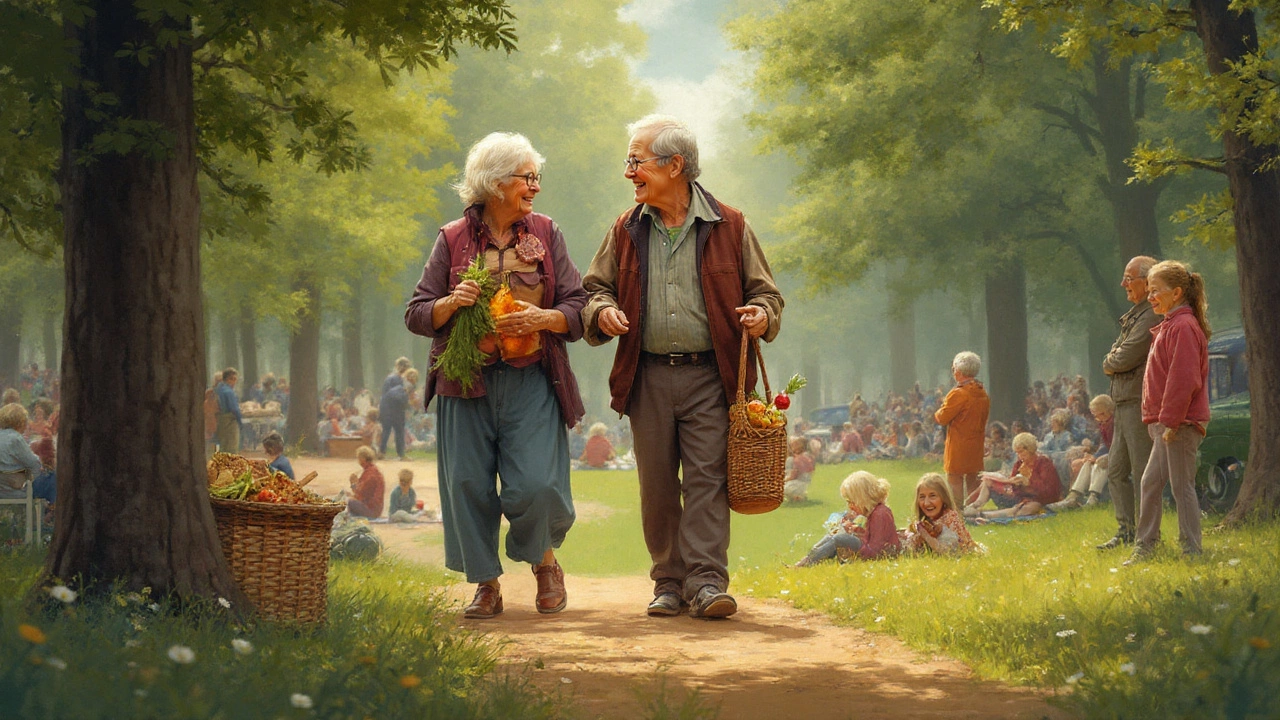
Tips to Keep Your Skin, Brain, and Body Young—No Matter What You Eat
So now you’re probably asking: Can I actually outsmart the clock with my food? Here’s the deal—whether you’re a vegetarian, meat eater, or somewhere between (hello, flexitarians!), the goal is to fill your plate with foods your body loves. Here are the most useful, science-backed tips to age well, inside and out:
- Get enough protein—for real. If you’re vegetarian, aim for a mix of proteins: eggs, dairy, beans, lentils, soy, nuts, and seeds. Try Greek yogurt with berries, tofu stir-fry, or bean chili. If you eat meat, reach for lean cuts over processed types.
- Don’t ignore B12. Grab fortified breakfast cereals or take a B12 supplement if you’re plant-based. Lethargy or pale skin? Get your B12 checked by a doctor.
- Iron it out. Mix iron-rich foods (lentils, spinach, pumpkin seeds) with vitamin C (like oranges) for better absorption. Avoid tea or coffee with meals—they block iron a bit.
- Omega-3s are your friend. Meat eaters get these from fish; vegetarians can try walnuts, flaxseed, and chia. If you’re vegan, consider an algae-based supplement.
- Pile on whole foods. Aim for at least five servings per day of fruits and vegetables. Think apples, carrots, spinach, berries, sweet potatoes.
- Hydrate, hydrate, hydrate. Skin cells rely on water. If you’re not peeing nearly clear by midday, down another glass.
- Limit the junk. Chips and cookies add years to your arteries way faster than a lack of meat ever could.
- Prioritize sleep. Sleep repairs skin and cells. Miss out and no salad or steak will save you.
- Move daily. Walk, bike, chase the cat Whiskers through the hallway. Your body needs to move, no matter what fuels it.
So where does this leave you? Growing old isn’t about whether you hated ham sandwiches growing up—it’s about balance, planning, and what tops your shopping list. Staring at an avocado toast, you aren’t dooming yourself to crows’ feet before your time. And a steak lover with a side of broccoli is hardly selling their soul to the age gods. The truth is way less dramatic—and way more doable—than all the online shouting makes it seem.
Key takeaway: eat smart, be curious, and keep your diet colorful and full of variety. That’s your ticket to a longer, stronger, and more vibrant life—no matter if you picked up the tofu or the T-bone for dinner.

